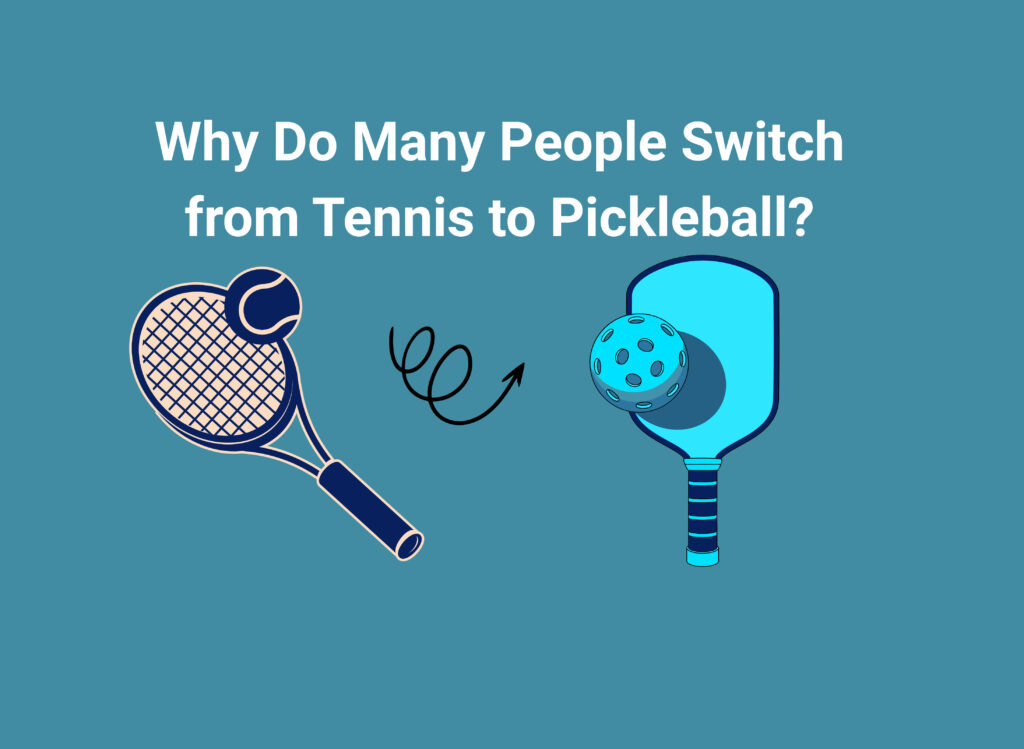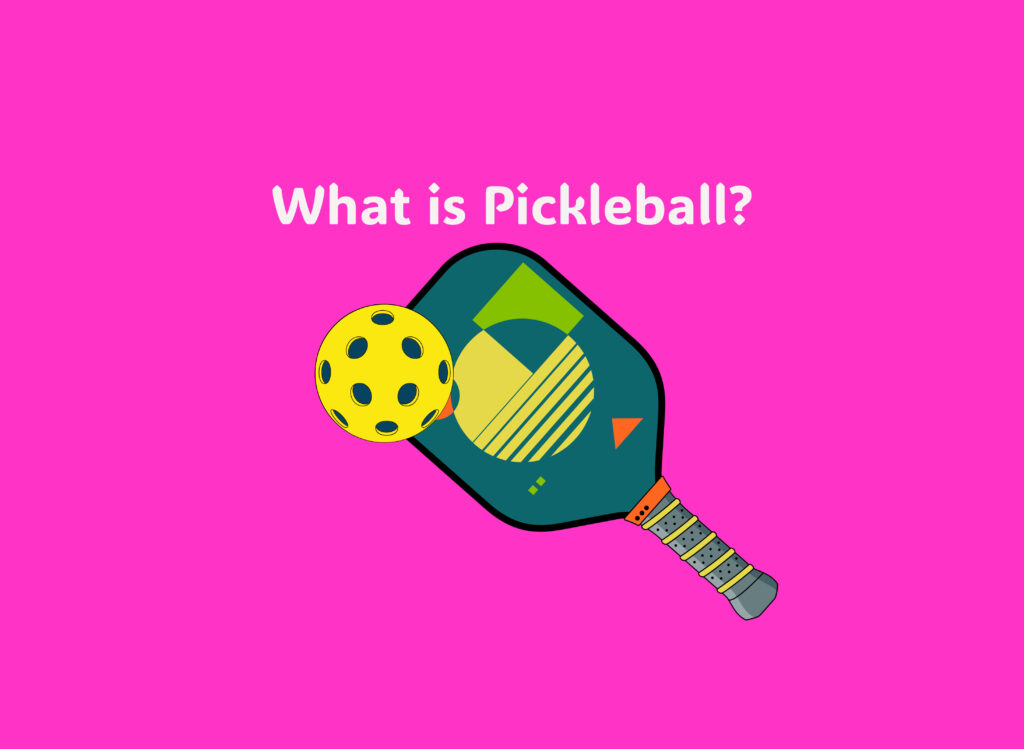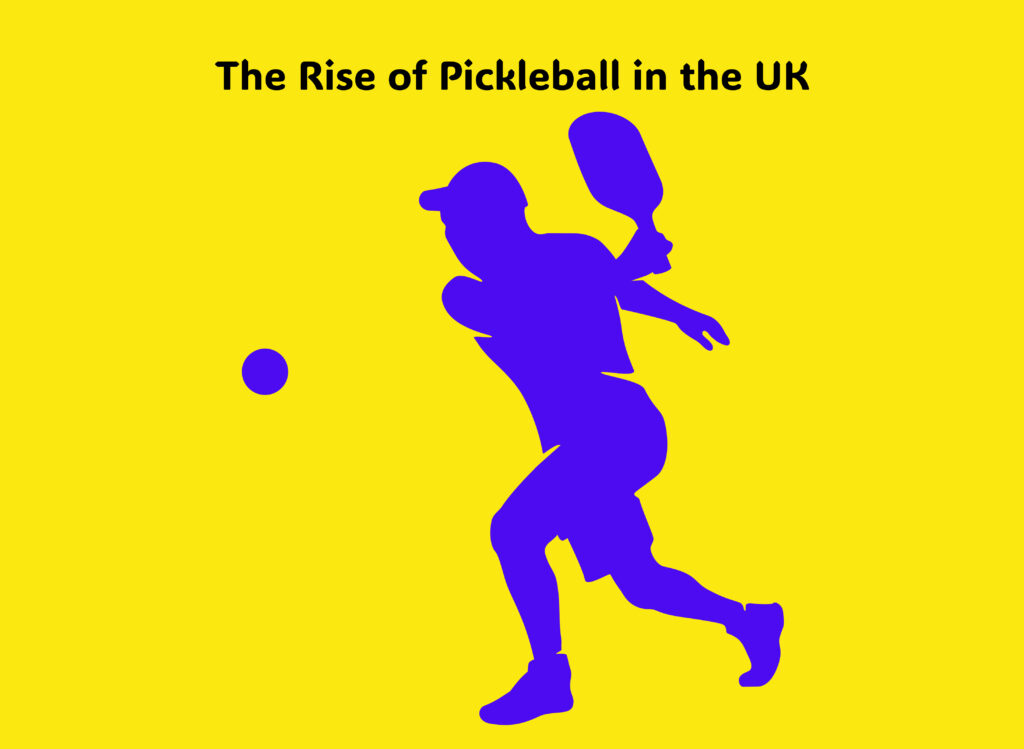The Switch from Tennis to Pickleball?
Switch from Tennis to Pickleball? If you’ve spent time on a UK tennis court recently, you may have noticed something interesting some of your regular tennis mates are suddenly wielding shorter paddles and chasing a plastic ball with holes in it. They haven’t given up on the game completely, but they’re playing something new, something addictive, something called pickleball. And they’re not alone. Across the UK, an increasing number of tennis players both recreational and retired competitive types are making the switch. But why is this happening? What makes someone trade in their racket for a paddle?
The answer lies in a mix of accessibility, community, physical demands, and pure enjoyment. While tennis remains a fantastic sport with deep roots in British culture, pickleball is offering something fresh. For many, it’s not about quitting tennis; it’s about finding something more sustainable, social, and fun especially as they age or want to avoid recurring injuries. It’s no coincidence that some of the busiest pickleball sessions in the UK are filled with players who once ruled the local tennis leagues. They’re not walking away from competition, they’re simply adapting to a new chapter in their sporting lives.
Pickleball Offers Longevity Without Losing the Competitive Spark
One of the biggest reasons tennis players shift to pickleball is that it allows them to stay competitive without the same physical wear and tear. Tennis especially singles is demanding. Long rallies, hard serves, quick sprints and sharp directional changes put immense stress on the knees, hips, ankles, and shoulders. For lifelong tennis players in the UK who are entering their 50s, 60s, or 70s, this can eventually become unsustainable, no matter how passionate they are about the game.
Pickleball offers a much kinder court experience. The smaller court reduces the amount of running needed. The paddle is lighter, and the underhand serve eliminates the high-torque shoulder motion seen in tennis. Yet, despite being easier on the body, pickleball is still deeply tactical, especially at higher levels. Former tennis players find themselves thriving in the quick volleys, anticipating angles, and reading opponents using their court instincts in a whole new way. It’s a sport where experience and positioning often outweigh raw power, making it perfect for those who still love to compete but don’t want to grind through lengthy singles matches on hard courts.
Key takeaway: Tennis players often switch to pickleball to extend their sporting life keeping the mental challenge while easing the physical load.
Community, Social Energy, and Accessibility Win People Over
In the UK, tennis has sometimes carried an air of exclusivity private clubs, membership fees, and structured play. While efforts have been made to make the sport more inclusive, pickleball’s culture starts with community. It’s casual, welcoming, and thrives on mixed-level, social play. Walk into a pickleball session in Bristol, Birmingham, or Brighton and you’ll be greeted with smiles, partner swaps, and shared laughter. There’s no pressure to “book a court” or “bring your own partner” you just turn up and play.
For former tennis players, this openness is often a breath of fresh air. Many say that pickleball has rekindled their love for the game, from competition, to the people they meet. The smaller court means more interaction. The doubles format creates more opportunities to chat, laugh, and connect. For those who spent years playing tense singles matches or quiet tennis drills, the sound of a pickleball session full of chatter and paddle pops is music to their ears.
Accessibility is another major factor. It’s far easier to get into pickleball without elite coaching or expensive gear. Most UK clubs lend out paddles for beginners and host drop-in sessions. Tennis can feel intimidating for lapsed or rusty players. Pickleball doesn’t care how long it’s been you’re always welcome.
Key takeaway: The social energy and inclusive culture of pickleball make it incredibly appealing to tennis players looking for a more relaxed, connected experience.
Final Thoughts: It’s Not Tennis vs Pickleball—It’s Evolution
The growing number of tennis-to-pickleball converts in the UK is not a threat to tennis, but a natural progression. As bodies change, interests shift, and communities evolve, pickleball offers a new space to play, connect, and compete. For many former tennis players, it doesn’t feel like starting over it feels like coming home. All the skills they’ve spent years developing still apply, just in a different format. The footwork, the net play, the court awareness—it all transfers beautifully.
And let’s be honest pickleball is just plain fun. It’s fast, easy to pick up, and full of quirky rallies that can turn any serious sports session into an hour of laughs. You don’t have to give up tennis to enjoy pickleball. But once you start playing, don’t be surprised if your tennis racket spends a bit more time in the cupboard.
Key Takeaways on the Switch from Tennis to Pickleball:
✔ Tennis players in the UK are switching to pickleball for longevity, fun, and injury prevention.
✔ Pickleball offers a competitive edge without the physical strain of singles tennis.
✔ The social, inclusive nature of pickleball makes it a breath of fresh air for ex-tennis players.
✔ It’s easy to access, affordable, and thrives in community-driven clubs.
✔ Pickleball isn’t a replacement for tennis but the perfect next step for those who still love the game.
👀 Enjoyed this read? Fancy levelling up your game even more? Keep reading Dink Quest for the best pickleball tips, drills, and news in the UK!
🎯 Check out these popular posts next:
📬 Subscribe to the Dink Quest newsletter to Stay in the Loop and be the first to get new blog posts, UK pickleball news, tips, player spotlights and exclusive offers
👉 Click here to subscribe now
Get discounts and exclusive offers for Paddles, clothing and accessories from our shop
We’ve got plenty more where that came from! Whether you’re working on your third shot drop, curious about dinking strategies, or just figuring out how to hold your paddle without it flying across the court we’ve got you covered.
👉 Keep reading, keep learning, and keep dinking smart. Let’s grow the game together, one dink at a time. 💚
See you on the court!
The Dinkquest Team UK 🏓


